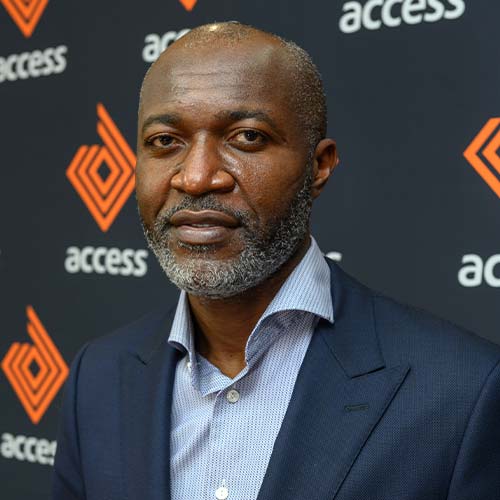Access Bank of Nigerian Chief Executive Officer Roosevelt Ogbonna said devaluation of the naira has made it difficult for business owners to make profits.
Ogbonna who was speaking during a media conference said it was easier to make profits in other African countries than in Nigeria. The naira has been on steady decline since the administration of President Bola Tinubu announced the unification of all segments of the foreign exchange (FX) market and floating of the naira on June 14, 2023. Couple with the removal of petroleum subsidy, inflation continues to soar each passing month.
“Now, if you take Africa as a continent and you split it into five zones, Nigeria and West Africa is number four out of five from the retailers’ perspective,” Ogbonna said.
“As a business, I’m making more money in Southern Africa, East Africa, North Africa, before Nigeria. We need markets where we have stronger returns. And even that, we have to test it, given what the evaluation has done for Central Africa.
“In today’s terms, I suspect Central Africa might have a richer banking pool than West Africa. So when you hear there’s a lot of noise in the public around banks making money, if we take that same capital and go to South Africa, we make three times the money we’re making here.
“I guess to put it in perspective, in 2008, one South African bank was bigger and more profitable than the entire Nigerian banking industry.
“And at that time, Nigeria was the second largest economy in the continent. So something around that conversation doesn’t add up. So we’re going to invest in markets.”
Ogbonna questioned if investors will rather invest $100 in Access Bank United Kingdom (UK) and get a 25 percent return in dollars or invest in Nigeria and get a return on equity of over 20 percent in naira and face devaluation.
“If I have capital, $100 of capital to spend, should I put it in Nigeria and get a return on equity of 20-something percent in Naira and face devaluation? Or do I take $100, put it in Access UK and get 25 percent return in dollars? I think it’s a no-brainer,” he said.
“Or do I go to Botswana, where the currency has been stable for at least 10 years, and any return I get is in real terms? Or do I go to Cameroon, where inflation rate is about 4 percent and has been for many years? Or do I go to markets like Cote d’Ivoire, where because of their heads to the euro, it’s made that there’s significant stability in the market.”


